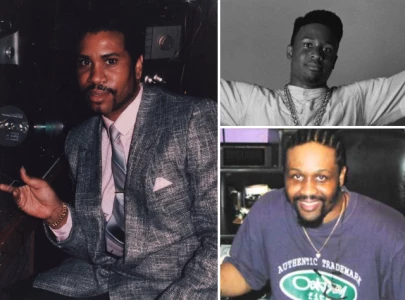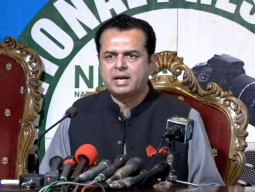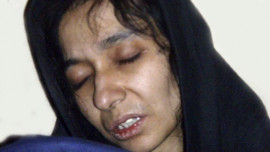
Over three months later, the special court formally charged former military ruler General Pervez Musharraf for imposing emergency rule in the country in 2007. The former army chief appeared before the three-judge bench Monday morning much to everyone’s surprise and rejected all charges against him.
According to the prosecution, Monday marked the ‘first day’ of Musharraf’s trial as he was finally indicted.
The charges read out to the ex-military ruler were the same ones put forward by the government last year – for subverting and circumventing the Constitution by imposing emergency on November 3, 2007 – when they had moved to form the special bench. Justice Tahira Safdar read out the official charge sheet to Musharraf, to which he pleaded not guilty.
Five charges have been levelled against him. First, he is accused of issuing “an unconstitutional and unlawful Proclamation of Emergency Order, 2007” on November 3 of that year, where he subverted the Constitution. Secondly, he is also charged with issuing the Provisional Constitution Order No 1 of 2007 that empowered the president to amend the 1973 Constitution from time to time and he also suspended the Fundamental Rights enshrined in Articles 9, 10, 15, 16, 17, 19 and 25 of the Constitution.
Moreover, as president, he issued an ‘Oath of Office (Judges) Order, 2007’ whereby an oath was, unconstitutionally and unlawfully, introduced in the schedule, which was the third charge. “This order also resulted in the removal of numerous judges of the superior courts, including the Honourable Chief Justice of Pakistan.”
The fourth charge was that on November 20, 2007, he issued Order 5 of 2007 i.e. Constitution (Amendment) Order, 2007 “whereby Articles 175, 186-A, 198, 218, 270B and 270C were, unconstitutionally and unlawfully, amended and Article 270AAA was added to the Constitution”.
“On December, 14, 2007 as president, he issued an unconstitutional and unlawful Order 6 of 2007, Constitution (Second Amendment) Order, 2007, whereby the Constitution was unconstitutionally and unlawfully amended...”, was the final charge on the former military ruler.
All the five charges are offences of high treason punishable under Section 2 of the High Treason (Punishment) Act, 1973, according to the charge sheet.
After the framing of charges, Musharraf addressed the court for 24 minutes, adulating his ‘successful tenure’ as president. Rejecting all charges levelled against him, he said, “Whatever I did, I did for the country and its people. I am sad that I am being called a traitor.”
Musharraf maintained the defence claim that he did not act independently, but followed the advice of then prime minister Shaukat Aziz and the cabinet when he suspended the Constitution
Permission to go abroad
In its written order, the court accommodated the former general’s request to let him travel abroad, saying it was the government’s decision to allow him to leave the country. “Unless an accused is in custody, a criminal court cannot restrict his movement (and) he can work for gain anywhere and get medical treatment at a medical facility of his own choice,” the court observed.
However, the bench added, “The accused is required to appear before the court as and when required and can seek exemption from appearance on justifiable grounds.”
The Justice Faisal Arab-led bench clarified that the special court cannot invoke and exercise the high court’s power under article 199 of the constitution, but it agreed with Musharraf’s counsels’ view that mere pendency of a criminal case ipso facto does not restrict an accused from travelling abroad. It is the federal government and not this court, which has placed the name of the accused on the Exit Control List (ECL), the special court clarified.
APML fail to muster support
The All Pakistan Muslim League’s (APML) attempts at showcasing political strength continued to be unsuccessful as its workers failed to gather outside the special court in support of their leader.
Hardly a dozen of Musharraf loyalists and Muttahida Qaumi Movement (MQM) workers managed to reach the court where the trial was taking place on Monday. The supporters held portraits of Pervez Musharraf and chanted slogans in support of the former dictator.
This was almost the same group of supporters present at the court a month ago, when Musharraf made his first court appearance. “We, too, were not expecting Musharraf sahib to show up. That’s why there are a few supporters,” said Ahsan Khan, an APML supporter. “There would have been thousands of party workers if we had known,” he maintained.
Published in The Express Tribune, April 1st, 2014.
COMMENTS (2)
Comments are moderated and generally will be posted if they are on-topic and not abusive.
For more information, please see our Comments FAQ





1732355030-0/BeFunk_§_]__-(41)1732355030-0.jpg)



1732356840-0/Copy-of-Untitled-(1)1732356840-0-270x192.webp)







U.N yet to release proof of collaboration between PMLN and biased judges special court,will become null and void judgement.
Unless Mush apologizes, and shows remorse and shame the trial must go on. He is still proud and arrogant about committing high treason multiple times and throw 60 plus judges and their innocent families in long detention. Where are those who never stop talking about Islamic equality when it comes to elected leaders? Equality is only for popular civilians not for generals.